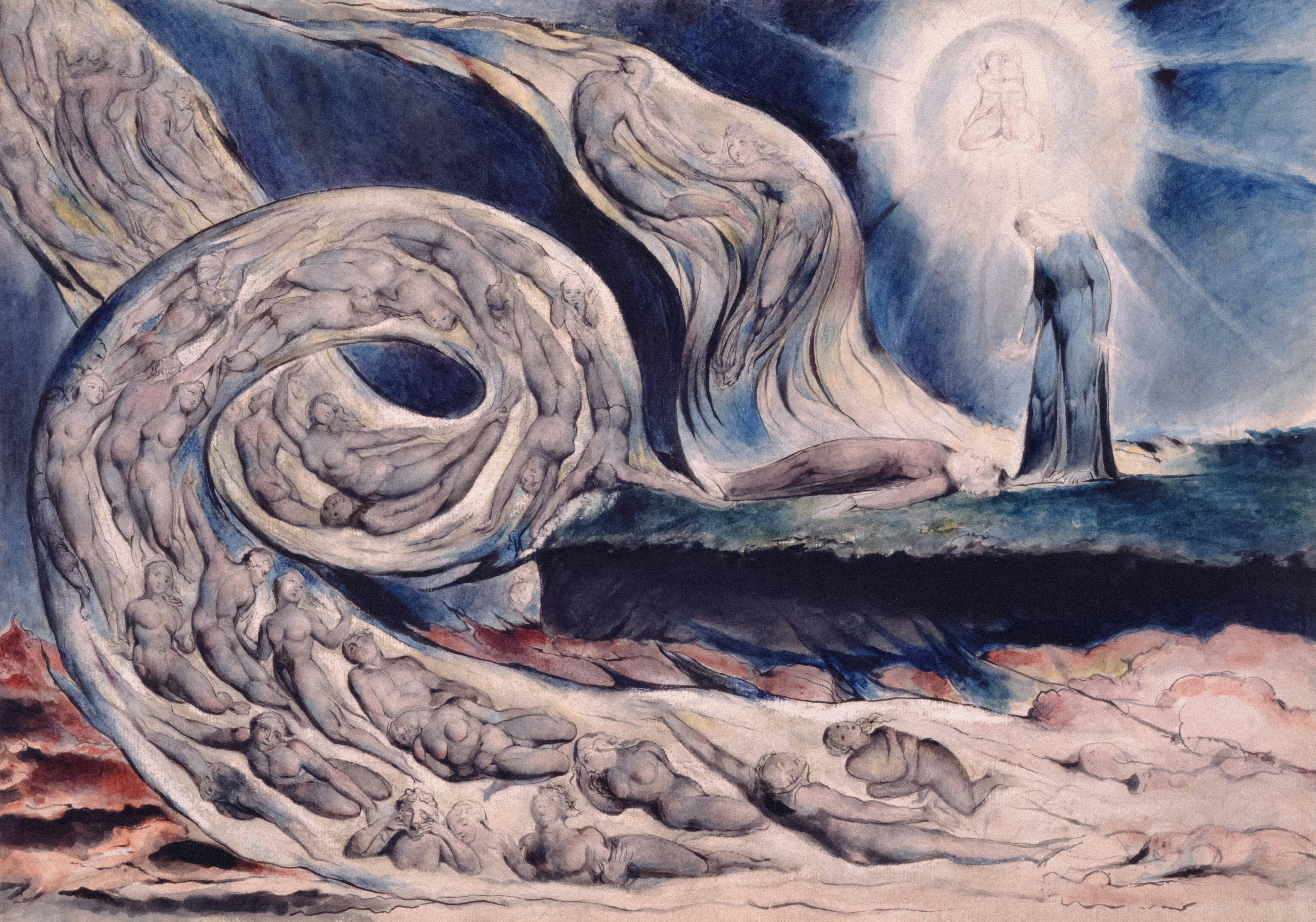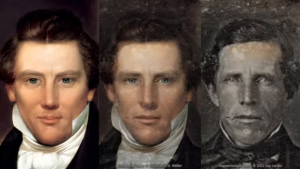Growing Up Mormon: The Journey of Dan Reynolds

Introduction to Dan Reynolds
Dan Reynolds, the acclaimed lead vocalist of the Grammy Award-winning band Imagine Dragons, was born on July 14, 1987, in Las Vegas, Nevada. He was raised in a Mormon household, which played a crucial role in shaping his identity and artistic journey. Coming from a family deeply rooted in the principles of the Church of Jesus Christ of Latter-day Saints, Reynolds was exposed to a community that emphasized strong values, service to others, and a close-knit family structure.
Reynolds’ early life was characterized by a passion for music and a strong desire to express his thoughts and emotions. Growing up in a religious environment, he was encouraged to explore various forms of artistic expression; however, the conforming nature of his upbringing often led to inner conflicts. As a member of the Mormon faith, he faced substantial expectations from both his family and community regarding behavior, lifestyle, and adherence to church teachings.
This cultural backdrop significantly influenced Reynolds’ songwriting and artistic themes, often reflecting the struggles of reconciling personal beliefs with societal pressures. His experiences of growing up in a predominantly Mormon community fostered a sense of belonging, yet also instilled feelings of isolation as he began to grapple with his own mental health issues. The journey of self-discovery that ensued ultimately became a central theme in much of Imagine Dragons’ music, resonating with fans around the world.
In the coming sections, we will delve deeper into how these formative experiences not only shaped Reynolds as a musician but also contributed to his advocacy work focused on mental health and acceptance. Understanding his roots provides valuable insight into the meaning behind his songs and the messages he shares with audiences globally.

The Influence of Mormonism on His Early Life
Dan Reynolds, the lead vocalist of Imagine Dragons, was born into a devout Mormon family in Las Vegas, Nevada. His upbringing in the Church of Jesus Christ of Latter-day Saints profoundly impacted his early life, instilling certain values and teachings that would shape his character and moral framework. The core tenets of Mormonism, including the importance of family, community service, and living a moral life, were emphasized throughout his childhood, creating a structured environment that guided his developmental years.
In his formative years, Reynolds’ family actively participated in church activities, fostering a strong sense of community. This involvement provided him with a network of support that reinforced the ideals of compassion, service, and friendship. The teachings of the church emphasized helping those in need, which influenced Reynolds to engage in various community service projects, cultivating empathy and a desire to improve the lives of others. Through the lens of his faith, he learned the value of selflessness, which would later resonate in his philanthropic efforts as an adult.
However, the pressure to conform to traditional beliefs within the church also posed challenges. Reynolds faced expectations to adhere to strict moral codes, which could be incompatible with his naturally rebellious spirit and artistic aspirations. The internal conflict between his personal identity and the encompassing doctrines of Mormonism sometimes led to feelings of isolation, particularly as he began to explore the complexities of life outside of the church’s teachings. This struggle would later contribute to his advocacy for mental health awareness and acceptance, an issue that closely reflects the experiences of many individuals growing up in a faith-centric environment.

Struggles with Faith and Identity
Dan Reynolds, the lead vocalist of the popular band Imagine Dragons, grew up in a strict Mormon community, where the expectations surrounding faith and identity were deeply ingrained. As he matured, he faced significant internal conflicts that stemmed from his religious upbringing. The tension between his artistic aspirations and the traditional values of Mormonism often left him feeling fragmented, as he grappled with the question of how to embrace both his passion for music and the doctrines he was raised to uphold.
The complexities of Reynolds’ experience reflect broader themes of identity and faith that resonate with many individuals who grow up in similar environments. As he began to express himself through music, he encountered moments of doubt regarding the beliefs he had once accepted without question. His exploration of various musical genres was not simply a creative pursuit but also a quest for authentic self-expression that challenged the confines of his upbringing. This creative journey allowed him to confront the contradictions he felt between his personal desires and the expectations of his community.
Throughout this period of exploration, Reynolds experienced profound questioning that was often accompanied by feelings of isolation. Many of his formative experiences within the church were marked by teachings that did not align with his evolving worldview. This dissonance led him to a critical juncture: he had to decide whether to conform to the expectations of his faith or to brave the path of self-discovery, which at times felt like a departure from his roots. Ultimately, Reynolds’ journey illustrates the struggles faced by many individuals who question their beliefs while striving to forge an identity that is true to themselves. This narrative sheds light on the universal quest for understanding, acceptance, and personal fulfillment beyond the confines of religious doctrine.

The Breakthrough with Imagine Dragons
Dan Reynolds, as the frontman of Imagine Dragons, has cemented his place in the music industry, largely influenced by his upbringing in the Mormon faith. The band’s journey to success began with the release of their debut album, “Night Visions,” in 2012, which not only received critical acclaim but also resonated deeply with a diverse audience. The album’s lead single, “It’s Time,” showcased a unique fusion of pop, rock, and alternative sounds, establishing the band’s distinctive identity.
The themes of resilience, identity, and personal struggle that permeate Imagine Dragons’ music often echo Reynolds’ own experiences growing up in a religious environment. The influence of his Mormon background can be seen in the introspective nature of the lyrics, which grapple with issues of faith, doubt, and the search for purpose. Songs like “Demons” and “Believer” reflect a candid exploration of inner conflicts, showcasing how Reynolds has skillfully woven his personal narratives into the fabric of the band’s music.
The band’s breakthrough moment came as they won several awards and reached global audiences, solidifying their status as icons in the industry. Their journey exemplifies how artists can channel their life experiences into compelling music that resonates with listeners on multiple levels. By embracing the complex realities of his upbringing, Reynolds has created a powerful connection with fans who often find solace in the themes of struggle and triumph present in their songs.
In essence, Imagine Dragons stands as a testament to the transformative power of music, and Dan Reynolds’ trajectory highlights how personal upbringing can intricately shape an artist’s sound and message, making their work not just entertaining, but deeply meaningful as well.

Mental Health Advocacy and Personal Challenges
Dan Reynolds, the lead vocalist of the popular band Imagine Dragons, has candidly shared his struggles with mental health, widely influenced by his upbringing in the Mormon community. Growing up in an environment rich with strict beliefs and expectations, Reynolds battled feelings of isolation and inadequacy. As he matured, these challenges escalated, leading to experiences with depression and anxiety that prompted a profound personal journey into mental health advocacy.
Reynolds’ advocacy work came to the forefront as he began to openly discuss his mental health challenges. He has been particularly vocal about how these issues intersect with notions of faith and community within the Mormon church, which often stigmatizes mental health struggles. Recognizing the cultural barriers that prevent individuals from seeking help, Reynolds has made it a mission to raise awareness about these critical issues, aiming to foster a supportive environment where individuals can discuss mental health without fear of judgment.
A pivotal moment in his advocacy came with the launch of the “Bye Bye Baby” project, which aimed to create resources and support systems for those dealing with mental health issues. This initiative not only highlights his personal struggles but also serves as a rallying point for others facing similar challenges. By utilizing his platform, Reynolds seeks to empower individuals within the LDS community and beyond, encouraging them to prioritize their mental well-being and seek the necessary help.
Through sharing his own journey, Dan Reynolds has contributed significantly to the dialogue surrounding mental health in religious contexts, particularly in the Mormon community. His efforts emphasize the importance of compassion and understanding, showcasing how one’s personal struggle can pave the way for broader societal change. As he continues his work, Reynolds remains dedicated to breaking down the barriers to mental health discussions, illustrating remarkable courage and vulnerability in the face of adversity.

Cultural Expectations vs. Personal Freedom
The experience of growing up within the Mormon community often entails a complex interplay between deeply rooted cultural expectations and the quest for personal freedom. Dan Reynolds, the lead vocalist of Imagine Dragons, exemplifies this tension as he navigated his upbringing in Mormon culture. From an early age, he was exposed to a set of values and practices intrinsic to the faith that often dictated not only behavior but also personal aspirations and life choices. These cultural norms emphasize strong family ties, adherence to doctrine, and a lifestyle aligned with church teachings, creating a framework that can be challenging to transcend.
In Reynolds’ case, the decision to step away from certain religious norms came with significant internal conflict and societal pressure. As he grew older, he began to question elements of his upbringing that didn’t resonate with his personal beliefs or desires. This journey toward understanding and self-acceptance was not devoid of obstacles; it involved grappling with the expectations placed upon him by family, friends, and the broader community. The impact of these societal pressures is profound, leading to feelings of isolation and anxiety for those who struggle to conform to prescribed roles.
Reynolds navigated these complexities by openly communicating his choices to his loved ones. His candor illustrates the delicate balance between seeking personal freedom and maintaining familial relationships within a culture that may not readily accept deviation from established norms. This conversation, often fraught with tension, highlights the challenges individuals face when they choose to prioritize authenticity over conformity. Through his journey, Reynolds invites a broader dialogue about the struggle for identity amidst cultural expectations, encouraging others to pursue their own path in the face of challenges. Ultimately, his story serves as a poignant reminder of the beauty and difficulty inherent in the quest for personal freedom within a structured society.

Reconnecting with Roots: A Dual Identity
Dan Reynolds’ journey as a musician intertwines intricately with his upbringing in the Mormon faith. Growing up within the confines of the Church of Jesus Christ of Latter-day Saints, he was molded by teachings that emphasized community, values, and a strong sense of identity. His experiences within the church significantly influenced his artistic expressions and personal beliefs, crafting a dual identity that often oscillates between tradition and individualism. This duality presents reflections not just on faith, but on the broader question of self-discovery.
As Reynolds has navigated his career in the music industry, he has often revisited the teachings of his youth. The principles instilled during his formative years—such as perseverance, compassion, and the importance of community—have remained steadfast influences in his life. However, his success and experiences have urged him to adopt a more personal perspective on spirituality that sometimes diverges from orthodox beliefs. This journey toward self-authenticity involves a continual reassessment of the values he once held dear, blending them creatively with his contemporary worldview.
Retaining a connection with his Mormon roots has been both a source of comfort and conflict for Reynolds. He acknowledges the positive aspects of his upbringing, such as the strong focus on family and moral integrity, while also confronting the restrictive elements that certain doctrines imposed. This tension between loyalty to his past and the pursuit of personal truth marks a significant aspect of his evolution as an artist and individual. In fostering this relationship with his roots, Reynolds depicts a nuanced narrative that showcases the struggle to honor one’s heritage while simultaneously embracing the freedom to define spirituality outside traditional norms.
Ultimately, Reynolds exemplifies how one can cultivate a dual identity that honors both the lessons learned from faith and the evolution of personal beliefs. His journey reveals that reconciling conflicting identities is not merely a challenge, but an integral part of personal growth, especially for those who seek to make a meaningful impact through their art and life experiences.

Impact on the Music Industry and Fans
Dan Reynolds, the frontman of the band Imagine Dragons, has made a significant impact on the music industry by bringing themes of authenticity and personal struggles to the forefront of his work. Raised in a Mormon household, Reynolds’s journey through faith and mental health challenges has profoundly influenced both his music and his connection with listeners. His candidness regarding his upbringing and experiences has fostered a deeper narrative within the context of modern music, promoting a wave of vulnerability that resonates with many. This has led to a departure from traditional expectations of celebrity culture, where emotional honesty is often sidelined.
Reynolds’s openness about his battles with depression and anxiety has struck a chord with fans, creating an inclusive environment that acknowledges the complexities of mental health. Through his lyrics, he frequently addresses feelings of isolation and the search for acceptance, themes that reflect the struggles many individuals experience. His song “Demons,” for example, captures the duality of personal turmoil and the desire for connection, allowing listeners to feel seen and understood. This type of songwriting does not just entertain; it cultivates community among fans who relate to the issues presented, thus breaking the stigma surrounding mental health discussions.
Moreover, Reynolds has taken his advocacy beyond music. His involvement in mental health initiatives and support groups has further solidified his role as a beacon for those grappling with similar challenges. By publicly addressing his experiences, he encourages fans to share their stories, leading to an open dialogue about issues that were once hidden in the shadows. In doing so, he not only alters perceptions of masculinity in the music industry but also provides a platform that champions vulnerability, ultimately fostering a stronger sense of unity among listeners. This willingness to confront personal demons continues to influence a generation of artists and fans alike, marking Reynolds as a transformative figure in contemporary music.

Conclusion: Reflection on Growth and Acceptance
Dan Reynolds’ journey, from a young Mormon navigating the complexities of faith to becoming a celebrated musician, encapsulates the profound evolution of personal identity and mental health. His story is not merely about the struggles and challenges faced by individuals in rigid religious settings but rather a testament to the transformative power of acceptance and self-discovery. Through his candid reflections, Reynolds highlights the internal battles that can arise when one’s beliefs are challenged by personal experiences, especially in the realms of mental health.
As Reynolds transitioned from the confines of his upbringing to embracing a broader understanding of himself, he learned crucial lessons about the importance of authenticity and vulnerability. This aspect of his journey resonates deeply with those who have found themselves at the crossroads of faith and individuality. It is a clear reminder that embracing one’s history, including the complexities associated with it, can lead to personal empowerment and growth. By openly discussing his experiences with mental health, he challenges the stigma surrounding these issues, particularly within faith-based communities.
The significance of sharing personal stories, like that of Dan Reynolds, serves as a beacon of hope for others grappling with similar conflicts. It fosters a sense of connection and solidarity, encouraging individuals to feel less isolated in their struggles. In a world that often feels divided by differing beliefs and perspectives, Reynolds’ journey embodies the spirit of acceptance—of oneself and of others. His narrative encourages readers to reflect on their own paths, ultimately advocating for a greater understanding of the intricate relationship between faith, personal growth, and mental well-being. By recognizing and honoring our journeys, we can pave the way toward a more compassionate society.













Leave a Reply
You must be logged in to post a comment.